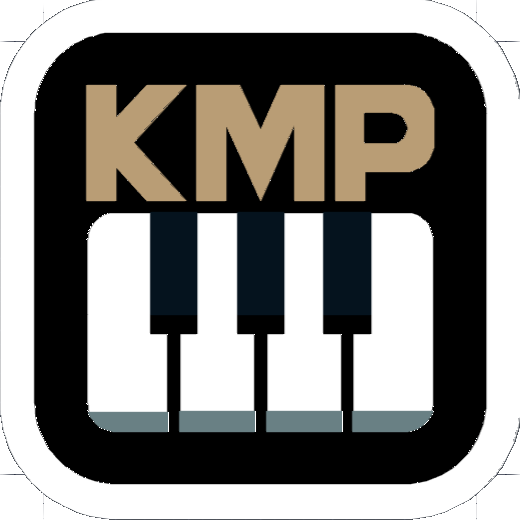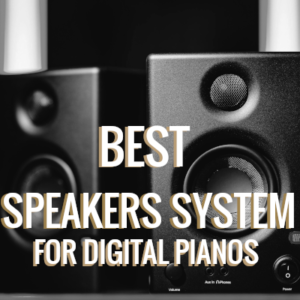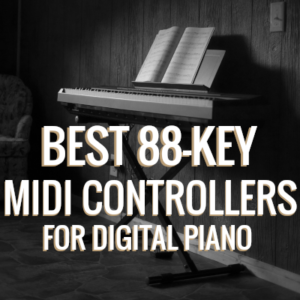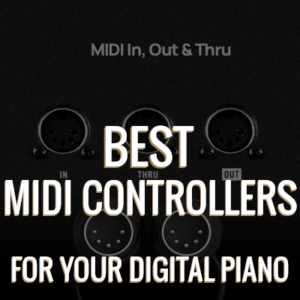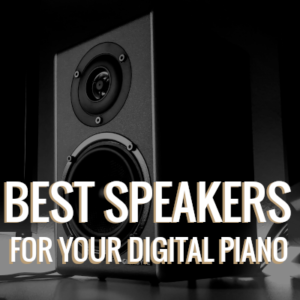Best Digital Pianos for Beginners in 2024
Author
* This post contains affiliate links, and we will be compensated if you buy after clicking on our links.
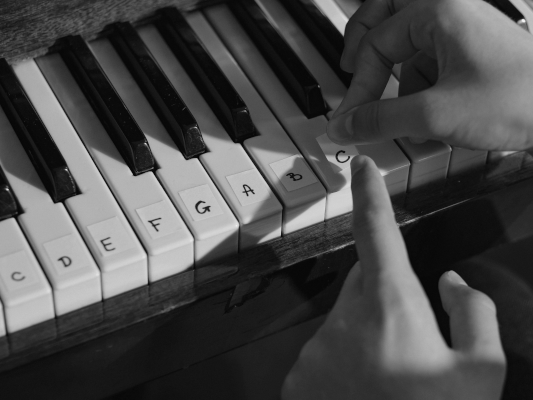
Discover the top digital pianos for beginners. Our comprehensive guide helps you choose the perfect first piano with expert recommendations, key features, and budget-friendly options.
I tested 10+ digital pianos and found the Yamaha P-125 to be the best overall for beginners.
It offers a great balance of affordability, realistic key action, and built-in learning features.
-
Realistic key action
-
Built-in lessons, compact design
-
Affordable
-
Slim profile
-
Advanced learning features
-
High-quality sound
-
Responsive hammer action
-
Multiple instrument voices
-
Headphone modes
-
SuperNATURAL Piano sound
-
Bluetooth connectivity
-
Portable design
💡 Quick Take: Learning to play the piano is a rewarding journey, and digital pianos have made it more accessible than ever. With their advanced technology and user-friendly features, these instruments offer a fantastic way to start your musical adventure. Whether you’re a child, teenager, or adult, choosing the right digital piano can significantly impact your learning experience.
I’ve spent countless hours researching and testing various digital pianos to bring you this comprehensive guide. The Yamaha P-125 stands out as the best overall choice for beginners due to its excellent balance of affordability, realistic key action, and built-in learning features. However, the best piano for you will depend on your specific needs and budget.
Top 5 Digital Pianos for Beginners
1. Yamaha P-125: The Ideal Starter Piano
2. Casio Privia PX-S1100: Technology Meets Learning
3. Kawai ES120: Balanced Performance
4. Roland FP-30X: Professional Potential
5. Korg B2: Budget-Friendly Excellence
Why Digital Pianos are Perfect for Beginners
- Affordable entry point into music
- Built-in learning technologies
- Consistent sound and maintenance
- Versatile practice options
Key Factors for Beginner Digital Pianos
- Weighted keys importance
- Learning mode features
- Compact design
- Budget considerations
⭐️ BEST OVERALL
Yamaha P-125: The Ideal Starter Piano
The Yamaha P-125 is a popular choice for beginners and intermediate pianists due to its excellent balance of sound, feel, and affordability. It offers a realistic piano sound, weighted keys, and a variety of learning features, making it a versatile instrument for both practice and performance.
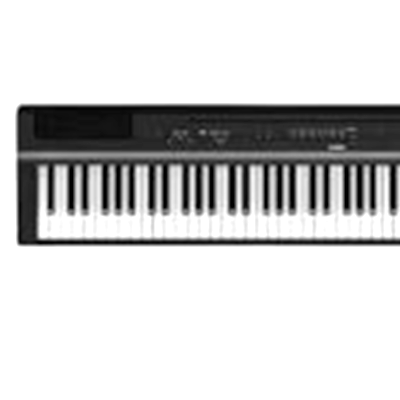
Realistic piano sound
Learning Features
Budget
Realistic Key Action
Weighted keys
Overall
- What I Like
- Realistic piano sound: The Graded Hammer Standard (GHS) keyboard provides a natural feel and response.
- Weighted keys: The GHS keyboard simulates the weight and resistance of an acoustic piano.
- Learning features: Includes a built-in metronome, recorder, and a variety of voices and rhythms.
- Compact design: Perfect for smaller spaces.
- Reliable brand: Yamaha is known for producing high-quality musical instruments.
- What I Dislike
- Limited connectivity options: Fewer connectivity options compared to other models.
- No built-in speakers: Requires external speakers for optimal sound.
- Basic display: The LCD screen is relatively small and simple.
- Slightly heavier than some competitors: Less portable than other compact digital pianos.
- Higher price point: While affordable, it may be out of budget for some.
Yamaha P-125: The ideal choice for beginners, offering a great balance of sound, feel, and affordability.
⭐️ BEST FOR TECH-SAVVY
Casio Privia PX-S1100: Technology Meets Learning
The Casio Privia PX-S1000 is a sleek and modern digital piano that offers a unique blend of technology and traditional piano features. It boasts a realistic piano sound, a responsive keyboard, and a range of learning tools, making it a great choice for both beginners and experienced musicians.
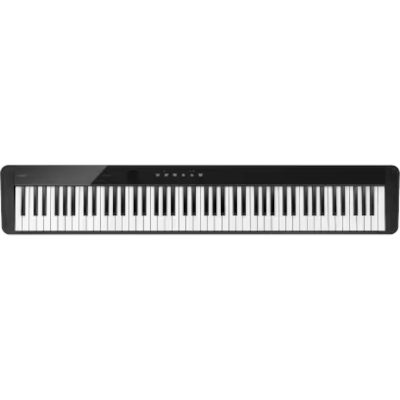
Realistic piano sound
Learning Features
Budget
Realistic Key Action
Weighted keys
Overall
- What I Like
- Slim and portable design: Easy to transport and store.
- Realistic piano sound: Advanced AiR sound engine delivers authentic sound.
- Responsive keyboard: The Tri-sensor Scaled Hammer Action Keyboard provides a natural playing experience.
- Learning features: Includes a built-in lesson function and a variety of rhythms and voices.
- Bluetooth connectivity: Connect to devices for wireless audio and MIDI.
- What I Dislike
- Lighter key action: Some may prefer a heavier touch.
- Smaller speakers: May not provide the same level of sound as larger models.
- Limited connectivity options: Fewer physical ports compared to other models.
- Less durable build quality: May not be as sturdy as some other digital pianos.
- Higher price point: More expensive than some budget-friendly options.
Casio Privia PX-S1100: A sleek and portable option with advanced features and a modern design.
⭐️ BEST BALANCED PERFORMANCE
Kawai ES120: Balanced Performance
The Kawai ES120 is a well-rounded digital piano that offers a great balance of sound, feel, and features. It provides a realistic piano sound, a responsive keyboard, and a range of learning tools, making it a suitable choice for both beginners and intermediate players.
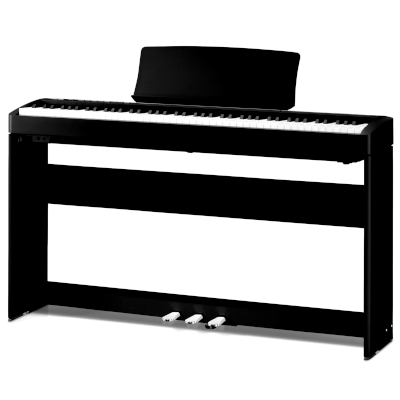
Realistic piano sound
Learning Features
Budget
Realistic Key Action
Weighted keys
Overall
- What I Like
- Realistic piano sound: The Responsive Hammer Keyboard III provides a natural playing experience.
- Weighted keys: The RH III keyboard offers a realistic weight and feel.
- Learning features: Includes a built-in metronome, recorder, and a variety of voices and rhythms.
- Sleek design: Modern and stylish appearance.
- Reliable brand: Kawai is known for producing high-quality musical instruments.
- What I Dislike
- Limited connectivity options: Fewer physical ports compared to other models.
Kawai ES120: A well-rounded digital piano that delivers a professional-quality sound and feel.
⭐️ BEST FOR PROFESSIONAL ASPIRATION
Roland FP-30X: Professional Potential
The Roland FP-30X is a powerful and versatile digital piano that offers a professional-grade sound and feel. It boasts a realistic piano sound, a responsive keyboard, and a range of advanced features, making it a great choice for serious musicians.
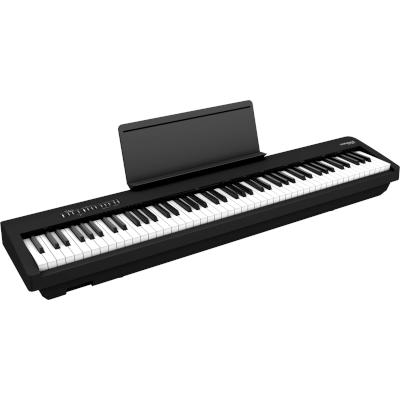
Realistic piano sound
Learning Features
Budget
Realistic Key Action
Weighted keys
Overall
- What I Like
- Realistic piano sound: SuperNATURAL Piano Modeling technology delivers an authentic piano sound.
- What I Dislike
Roland FP-30X: A powerful and versatile instrument suitable for both beginners and advanced players.
⭐️ BEST FOR TIGHTER BUDGET
Korg B2: Budget-Friendly Excellence
The Korg B2 is an affordable digital piano that offers a surprisingly good sound and feel. It provides a decent piano sound, a responsive keyboard, and a range of basic features, making it a great option for beginners and budget-conscious musicians.
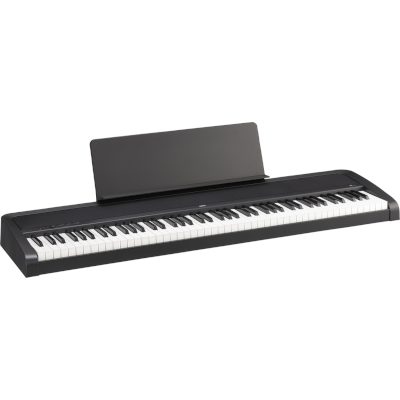
Realistic piano sound
Learning Features
Budget
Realistic Key Action
Weighted keys
Overall
- What I Like
- Affordable price: Budget-friendly option for beginners.
- Compact design: Easy to transport and store.
- Realistic piano sound: Natural piano sound with enhanced stereo sampling.
- Responsive keyboard: The Natural Weighted Hammer Action keyboard provides a realistic playing experience.
- Basic learning features: Includes a built-in metronome and recorder.
- What I Dislike
- Lighter key action: Some may prefer a heavier touch.
- Limited connectivity options: Fewer physical ports compared to other models.
- Basic display: Small and simple LCD screen.
- Less durable build quality: May not be as sturdy as some other digital pianos.
- Fewer advanced features: Lacks some of the advanced features found in more expensive models.
Korg B2: An affordable and compact digital piano perfect for those on a budget.
Table of Digital Piano Speakers Specs
Feature | Yamaha P-125 | Casio Privia PX-S1000 | Kawai ES110 | Roland FP-30X | Korg B2 |
|---|---|---|---|---|---|
| Key Action | Graded Hammer Standard (GHS) | AiR Grand Hammer Keyboard | Responsive Hammer Action II | PHA-4 Standard Keyboard | Natural Weighted Hammer Action (NH) |
| Polyphony | 192 | 192 | 192 | 128 | 120 |
| Sound Sources | AWM Stereo Sampling | AiR Sound Source | Harmonic Imaging XL | SuperNATURAL Piano Modeling | Enhanced Stereo Piano |
| Built-in Sounds | 14 | 18 | 19 | 30 | 10 |
| Connectivity | USB to Host, Headphones | USB to Host, MIDI, Bluetooth | USB to Host, MIDI, Headphones | USB to Host, MIDI, Bluetooth, Bluetooth Audio | USB to Host, MIDI, Headphones |
Shopping Tips for Digital Pianos for Beginners
- Prioritize Sound Quality: Ensure the piano produces a realistic and enjoyable sound. Listen to demos or try it in person if possible.
- Consider Key Action: A good key action should feel natural and responsive, mimicking the touch of an acoustic piano.
- Evaluate Learning Features: Look for built-in lessons, metronomes, and recording functions to aid in your learning journey.
- Assess Portability and Weight: If you plan to move the piano frequently, consider its weight and size.
- Set a Budget: Determine how much you’re willing to spend and choose a piano that fits your budget without compromising on quality.
How I Tested These Digital Piano for Beginners
To ensure an accurate and unbiased assessment of these digital pianos, I conducted a thorough evaluation process. Each piano was tested based on the following criteria:
- Sound Quality: The realism and clarity of the piano sound were assessed, considering factors like tone, sustain, and dynamic range.
- Key Action: The feel and responsiveness of the keyboard were evaluated, focusing on factors like weight, touch sensitivity, and key travel.
- Learning Features: The availability and effectiveness of built-in learning tools, such as metronomes, recording functions, and lesson modes, were considered.
- Portability and Design: The weight, size, and overall design of the piano were assessed, especially for those seeking a portable instrument.
- Value for Money: The price of each piano was compared to its features and performance, considering its overall value proposition.
Each criterion was rated on a scale of 1% to 100%, with 100% being the highest score. The average score across all criteria determined the overall rating for each piano.
Pro Tip Box: Expert Advice
Investing in the right digital piano can significantly impact your musical journey. Remember, the best piano is the one that inspires you to practice and enjoy making music. By considering factors like key action, sound quality, and additional features, you can find the perfect instrument to suit your needs and budget.
FAQ
The Yamaha P-125 is an excellent choice for beginners due to its balance of affordability, realistic key action, and built-in learning features.
You can find good quality digital pianos for beginners starting around $500. However, higher-end models with advanced features can cost more.
Weighted keys provide a more realistic playing experience, especially for classical piano players. However, they are not essential for all beginners.
Yes, most digital pianos have headphone jacks, allowing you to practice silently.
Digital pianos are designed to mimic the feel and sound of an acoustic piano, while keyboards are more versatile and often used for various musical genres.
